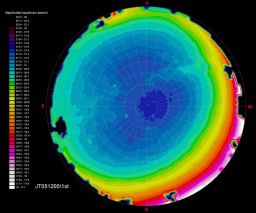Emily Lakdawalla • Jul 27, 2007
Stars Above, Earth Below: Appreciating Dark Skies
Tyler Nordgren just sent me a new "Stars Above, Earth Below" journal entry, as he prepares to depart for Rocky Mountain National Park. (Man, am I jealous of him for getting to do this project!) Here's a snippet from his update:
It occurred to me that as astronomers and planetary scientists my colleagues and I should be very concerned about [the loss of dark skies]. We have the privilege of doing what we love and exploring other worlds because the governments of this planet support us financially (both in paychecks and payloads). If the day comes when the last star disappears into the nighttime glow, and the last person stops looking up because they have forgotten there is a universe out there beyond the atmosphere, how long will the public continue to support our exploration or feel that it has any personal relevance to their lives?

Dan Duriscoe, NPS
The light-polluted sky over Joshua Tree National Park
An all-sky image of the sky over Joshua Tree National Park. Brightnesses per square arcsecond increase from blue to white. Notice the faint light-blue structure of the Milky Way overhead almost lost in the glare of southern California lights.Support our core enterprises
Your support powers our mission to explore worlds, find life, and defend Earth. You make all the difference when you make a gift. Give today!
Donate

 Explore Worlds
Explore Worlds Find Life
Find Life Defend Earth
Defend Earth

